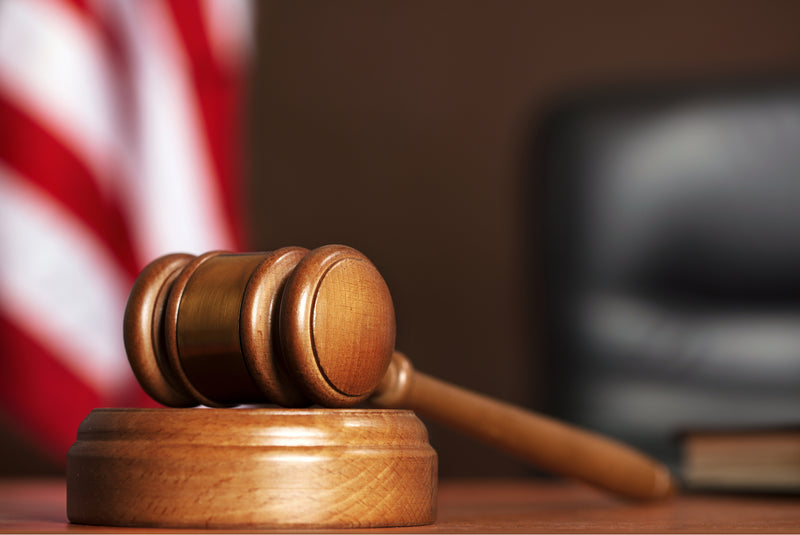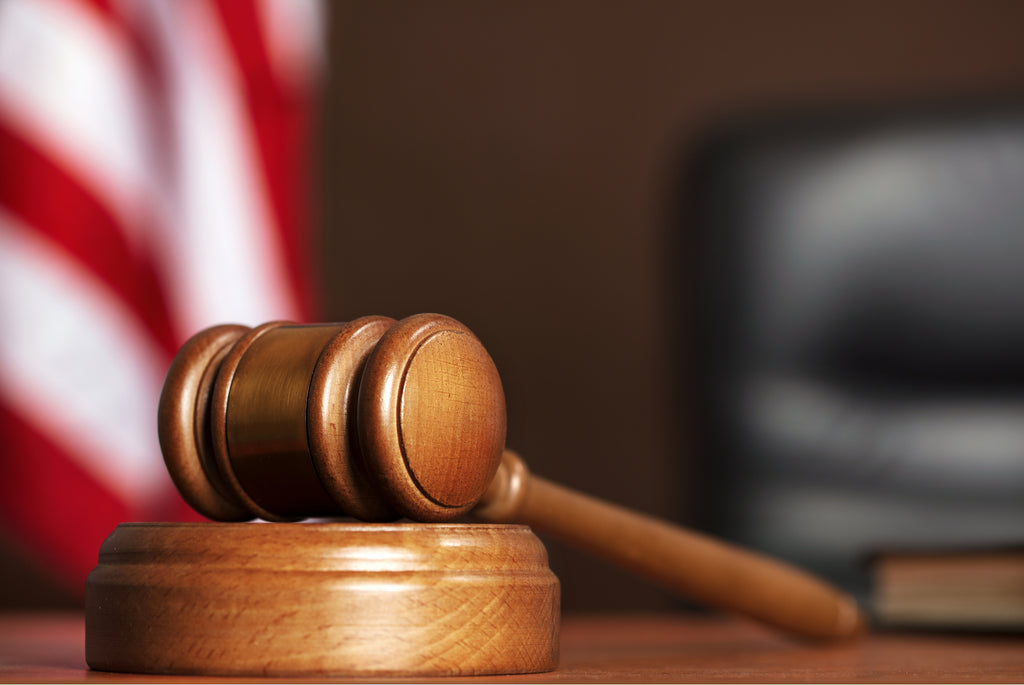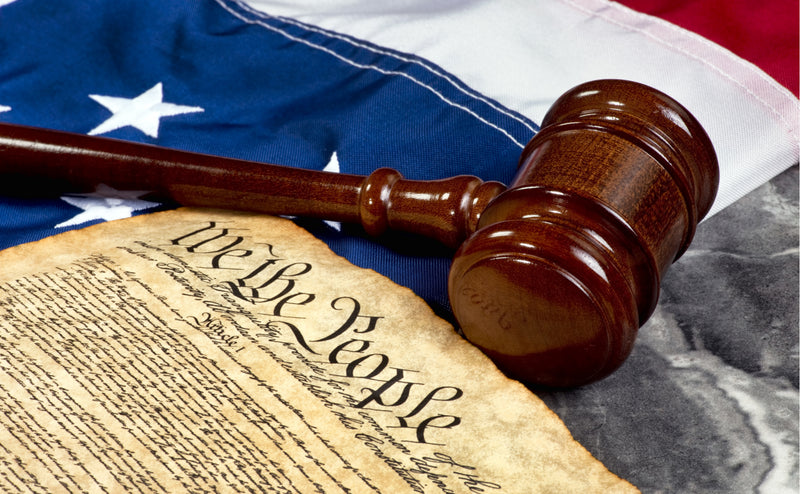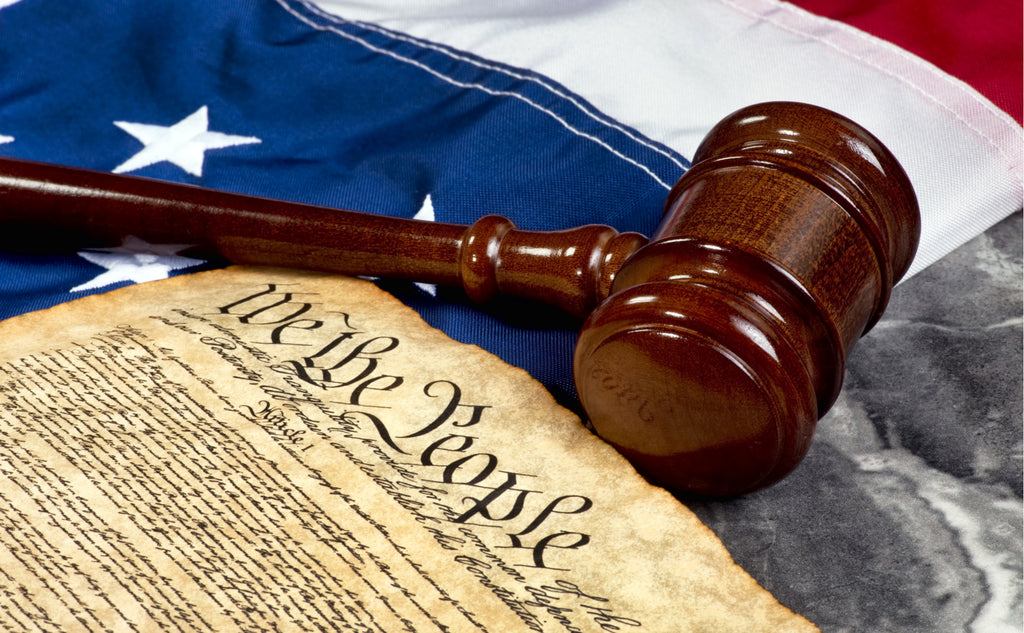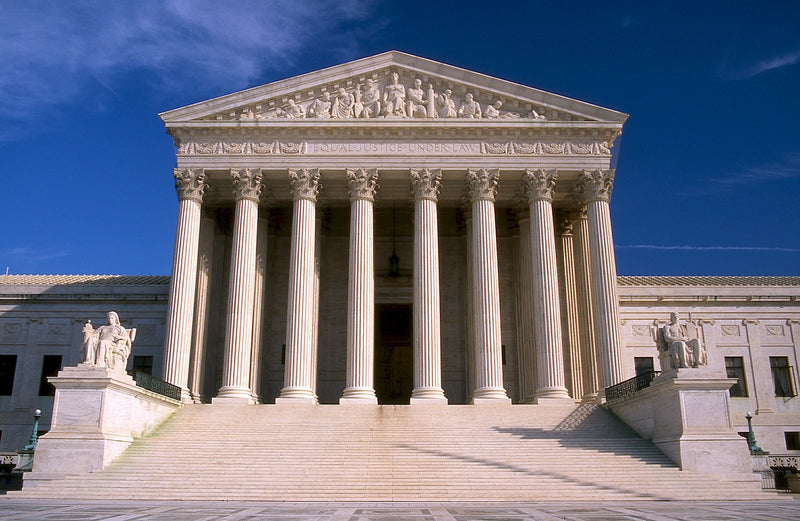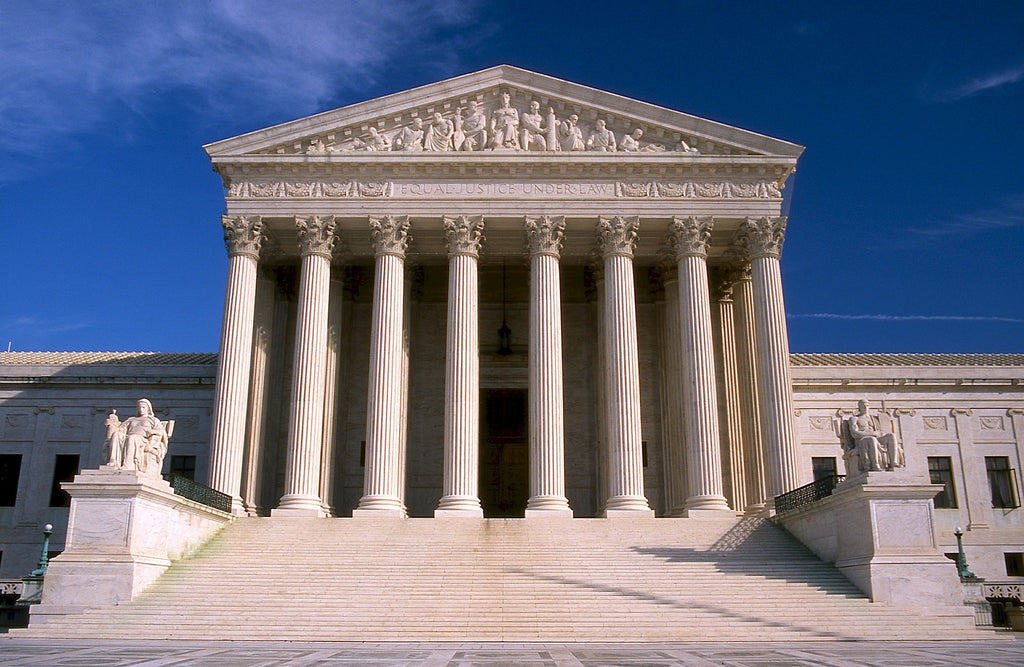{"id":436371031,"title":"17 Unit CLE Audio CD Bundle - 347 SERIES","handle":"17-unit-cle-bundle-345-series","description":"\u003cp\u003e\u003cspan style=\"color: #0000ff;\"\u003e\u003cstrong\u003e17 Hour CLE Package Includes 17 hours of any of the following selections:\u003c\/strong\u003e\u003c\/span\u003e\u003c\/p\u003e\n\u003cp\u003e\u003cstrong style=\"line-height: 1.2;\"\u003eBundle 347\u003c\/strong\u003e \u003c\/p\u003e\n\u003cp\u003e\u003cb\u003e\u003cb\u003eCOURSE #277\u003c\/b\u003e: \u003c\/b\u003eSubstance Abuse: Neurochemistry of Addition and Recovery\u003cbr\u003e\u003cbr\u003eHave you ever wondered how a physical substance like a psychoactive drug can change a mental or emotional state? To understand how this can happen, it may be helpful to know that all mental and emotional states are, in part, just manifestations of our brain chemistry. Slight changes in the levels and activities of certain brain chemicals (called neurotransmitters) can make for noticeable and sometimes dramatic changes in our moods and our thinking. The human brain is a collection of about three \u003cem\u003etrillion\u003c\/em\u003e cells called \u003cem\u003eneurons\u003c\/em\u003e, long, thin electrically-charged chemical-filled wire-like cells with electrochemical contacts on each end. Unlike other areas of our body where cells physically connect to each other, no two neurons actually touch. Neurons can only act collectively if they are able to communicate with and affect the action of other neurons. They communicate by releasing chemical signals accross the gaps that lie between them. (called synapses).\u003cbr\u003e\u003cbr\u003eScience has so far identified about 80 chemicals (called \u003cem\u003eneurotransmitters\u003c\/em\u003e) in the human brain. Each of us has the same 80-odd neurotransmitters. These brain chemicals tend to function in a fairly task-specific way - accounting for a limited number of actions and effects depending on which part of the brain the neurochemical activity is taking place.\u003cbr\u003e\u003cb\u003e\u003cbr\u003e\u003cbr\u003eCOURSE #301\u003c\/b\u003e: Hidden Estate Decimators - Income In Respect Of A Decedent\u003c\/p\u003e\n\u003cp\u003eThe House Ways and Means Committee released a draft of a tax plan that would raise the highest income tax rate by 4.3 % to 39.3%. By 2010 the highest income tax rate would excel to 44% after 2010. This would lift the Federal Income Tax Higher than it’s been since 1976.\u003c\/p\u003e\n\u003cp\u003eAnd get this: For families with incomes between $250K and 500K the “marginal” tax rate paid on the next dollar of earned income could sour to 80%, or some cases above 100%. In other words, some Americans could pay $1 in taxes for every $1 they earn under the House tax plan. This means that the income taxes paid by the top 1% would go to 40% of all paid taxes of the entire tax paying population.\u003c\/p\u003e\n\u003cp\u003eThe following discussion will show you how to mitigate the brutality of the Hidden Estate Decimator\u003c\/p\u003e\n\u003cp\u003e \u003c\/p\u003e\n\u003cp\u003e\u003cb\u003eCOURSE #302\u003c\/b\u003e: Effective Estate And Tax Planning\u003c\/p\u003e\n\u003cp\u003eEstate and Gift taxes are very complex. Anything you touch in terms of business transactions or Estate Planning will have a tax consequence. That would include Federal Estate and Gift tax, Income tax, and Property tax and State probate law. Making even more complicated; however, is ERISA. \u003c\/p\u003e\n\u003cp\u003ePassed in 1974 it created retirement accounts. Jack will now take you on the ‘grand tour’ of all the above to give you a better understanding of this complex array of taxes why it’s vitally important to “to do them right the first time. Rarely is there a second chance.\u003c\/p\u003e\n\u003cp\u003e \u003c\/p\u003e\n\u003cp\u003e\u003cb\u003eCOURSE #303\u003c\/b\u003e: Essential Keys To Probate Calendar Notes To Judgment\u003c\/p\u003e\n\u003cp\u003eHow many calendars are you currently using in your legal practice? How well have you organized them? Ultimate calendar control means no missed deadline or appointments. James Mikacich, a highly experienced probate attorney, will show you how to take control of critical areas that often fall through the cracks. His system will allow you quickly and efficiently manage your notes all the way to judgment....every time!\u003c\/p\u003e\n\u003cp\u003e \u003c\/p\u003e\n\u003cp\u003e\u003cb\u003eCOURSE #304\u003c\/b\u003e: How To Successfully Handle A Personal Injury Case\u003c\/p\u003e\n\u003cp\u003eHandling a P.I. cases isn’t rocket science, but you have to do it right. Assuming you get your first P.I., what do you do with it? Discover the secrets of one of California’s most eminent P.I. attorneys, as he takes you on a tour of the classic pitfalls of uncorrectable sin of sins that can bury your practice in an instant. So come join us for this revealing lecture that you can’t afford to miss.\u003c\/p\u003e\n\u003cp\u003e \u003c\/p\u003e\n\u003cp\u003e\u003cb\u003eCOURSE #305\u003c\/b\u003e: Critical Essentials Of Advanced Trust Planning\u003c\/p\u003e\n\u003cp\u003eDiscover Advanced Estate Planning Techniques beyond the Basics of Estate Planning Trusts. This course covers Generation Skipping Transfers, Spousal Trusts, Survivors Trusts, Marital Deduction Trusts, Bypass Trusts, and Unified Credits at the Death of First Spouse. This will assist with Estate Planning for Multigenerational gifting, leaving property in Trusts and Generation Skipping Transfer Taxes. Revocable Trusts A\/B\/C\/D Arrangements are also included.\u003c\/p\u003e\n\u003cp\u003e \u003c\/p\u003e\n\u003cp\u003e\u003cb\u003eCOURSE #306\u003c\/b\u003e: Bias: How To Do A Sexual Harassment Investigation\u003c\/p\u003e\n\u003cp\u003eTen years ago, the EEOC issued a policy on sexual harassment, including how to investigate complaints of sexual harassment. This discussion will present the EEOC's advice and offer suggestions for conducting investigations, based on the case law. Keep in mind that both the EEOC's policy recommendations and the following discussion of it apply equally to all forms of unlawful harassment, such as race, age, disability, religion, etc. harassment\u003c\/p\u003e\n\u003cp\u003e \u003c\/p\u003e\n\u003cp\u003e\u003cb\u003eCOURSE #307\u003c\/b\u003e: How To Use Government Benefits To Satisfy Child Support\u003c\/p\u003e\n\u003cp\u003eDaphne completed her undergraduate degree at the University of Chicago and her J.D. degree at the University of California, Berkeley. She brings to the table 20 plus years of in-depth experience. \u003c\/p\u003e\n\u003cp\u003eThis course is a rich resource that gives you the facts you need to know to make relevant family law decisions. Want to know who qualifies for SSI or Title 11? Need critical insights on how the Family Benefits Program works? How much income can a family expect to receive and much, much more? Come join us for her informative and insightful must-have lecture offering practical insights that can help your case\u003c\/p\u003e\n\u003cp\u003e \u003c\/p\u003e\n\u003cp\u003e\u003cb\u003eCOURSE #308\u003c\/b\u003e: Winning Techniques To Cross Examine During Trial\u003c\/p\u003e\n\u003cp\u003eHave you ever found yourself “on the spot,” forced to respond to difficult questions? Regardless of whether the questions came from clients inquiring about their cases, from a senior partner asking about a brief you wrote, or from a judge cross examining you during a motion hearing, it’s always a frustrating experience when you’re asked difficult questions that you haven’t anticipated and aren’t fully prepared to answer. How can you do that when you have no idea what to say and desperately need a few extra moments to gather your thoughts? \u003c\/p\u003e\n\u003cp\u003eThere are some simple techniques you can use to buy that extra time ou need before responding to a difficult question.\u003c\/p\u003e\n\u003cp\u003e \u003c\/p\u003e\n\u003cp\u003e\u003cb\u003eCOURSE #311\u003c\/b\u003e: Honing Your Skills For Trial Preparation\u003c\/p\u003e\n\u003cp\u003eA winning preparation is key to your successful case strategy. This includes correctly lining up your expert witneses, deterining causation, interviewing the witnesses and and closely examing each and every detail of your Case. What if you win your case and it is appealed to the Administrative Procedures? Can it be overturned? What is your next option? Come join us for this compelling real life case. The answer may surprise you.\u003c\/p\u003e\n\u003cp\u003e \u003c\/p\u003e\n\u003cp\u003e\u003cb\u003eCOURSE #313\u003c\/b\u003e: Winning A Personal Injury Case\u003c\/p\u003e\n\u003cp\u003eDavid Asch takes you behind closed doors and unlocks the secrets of more than 20 years of hard won experience to give you his valuable input. Each point is loaded a wealth of information that keeps you ahead of the game. You'll discover critical rules to operate by such as: problems to avoid when filling out the proper forms, what to do when your client has no auto insurance, what other problems does the client have when they can’t afford insurance? Uninsured Motorist Coverage; The effects of underinsured motorists on your case and your client, maximizing your clients claim, important insights to the holy grail for the defense, critical elements to put into your fee agreements, how a conflict of interest agreement can protect you and your client and much more\u003c\/p\u003e\n\u003cp\u003e \u003c\/p\u003e\n\u003cp\u003e\u003cb\u003eCOURSE #314\u003c\/b\u003e: How Will The North American Union Effect Your Law Practice\u003c\/p\u003e\n\u003cp\u003eHow will an economic and political union of Canada, U.S.A. and Mexico integrate the legal systems, common law and civil law, of all three countries? What kind of supranational entities will be utilized to assure its success? How will this change the economic and political infrastructure to give birth to a new super state much like the European Union? More importantly, what will the role of the judicial systems of each country play to bring about uniformity of law and eventual political integration of all three states called the North American Union?\u003c\/p\u003e\n\u003cp\u003eCome join us for this provocative presentation by Hector Gonzales, a successful Mexican attorney, as he discusses the issues and answers that will possibly could realize the once bold vision of Simon Bolivar and the father of the European Union Jean Monet to the North American continent\u003c\/p\u003e\n\u003cp\u003e \u003c\/p\u003e\n\u003cp\u003e\u003cb\u003eCOURSE #315\u003c\/b\u003e: Ethics: Practice law with integrity Part 1\u003c\/p\u003e\n\u003cp\u003eDid you know that every year, hundreds of attorneys are brought up on ethics violation charges? If you’ve got “dirty laundry in your ethical closet, the cost of defending yourself may far exceed anything you’ve imaged, including your license to practice law. Joel Primes uses his experience as an administrative law judge to show you how to avoid potential pitfalls, disgrace, and the ongoing consequences to your law practice. Moreover, his invaluable insights, humor with arm you with vital information to keep your firm clean, strong and prosperous for years to come.\u003c\/p\u003e\n\u003cp\u003e \u003c\/p\u003e\n\u003cp\u003e\u003cb\u003eCOURSE #316\u003c\/b\u003e: Ethics: Practice law with integrity Part 2\u003c\/p\u003e\n\u003cp\u003eDid you know that every year, hundreds of attorneys are brought up on ethics violation charges? If you’ve got “dirty laundry in your ethical closet, the cost of defending yourself may far exceed anything you’ve imaged, including your license to practice law. Joel Primes uses his experience as an administrative law judge to show you how to avoid potential pitfalls, disgrace, and the ongoing consequences to your law practice. Moreover, his invaluable insights, humor with arm you with vital information to keep your firm clean, strong and prosperous for years to come.\u003c\/p\u003e\n\u003cp\u003e \u003c\/p\u003e\n\u003cp\u003e\u003cb\u003eCOURSE #317\u003c\/b\u003e: When, Why And How To Use A Trial Bifurcation\u003c\/p\u003e\n\u003cp\u003e When and how should you bifurcate? The practice of bifurcating a case has its advantages. It can accelerate a resolution of one aspect of the case while providing an opportunity for the court to resolve the overall case, thus making it conducive to expedition and economy. Thus allowing the court to order a separate trial of any cause of action…. or any separate issue or any number of causes of action or issues. This lecture is highly beneficial to providing practical skill and understanding in successfully undertaking this action.\u003c\/p\u003e\n\u003cp\u003e \u003c\/p\u003e\n\u003cp\u003e\u003cb\u003eCOURSE #318\u003c\/b\u003e: Estate Plans: The Grand Tour Of Complex Issues Part 1\u003c\/p\u003e\n\u003cp\u003eEstate and Gift taxes are very complex. Anything you touch in terms of business transactions or Estate Planning will have a tax consequence. That would include Federal Estate and Gift tax, Income tax, and Property tax and State probate law. Making even more complicated; however, is ERISA. Passed in 1974, it created retirement accounts. Jack will now take you on the ‘grand tour’ of all the above to give you a better understanding of this complex array of taxes why it’s vitally important to do them right the first time. Rarely is there a second chance.\u003c\/p\u003e\n\u003cp\u003e \u003c\/p\u003e\n\u003cp\u003e\u003cb\u003eCOURSE #319\u003c\/b\u003e: Estate Plans: The Grand Tour Of Complex Issues Part 2\u003c\/p\u003e\n\u003cp\u003eEstate and Gift taxes are very complex. Anything you touch in terms of business transactions or Estate Planning will have a tax consequence. That would include Federal Estate and Gift tax, Income tax, and Property tax and State probate law. Making even more complicated; however, is ERISA. Passed in 1974, it created retirement accounts. Jack will now take you on the ‘grand tour’ of all the above to give you a better understanding of this complex array of taxes why it’s vitally important to do them right the first time. Rarely is there a second chance.\u003c\/p\u003e\n\u003cp\u003e \u003c\/p\u003e\n\u003cp\u003e\u003cb\u003eCOURSE #320\u003c\/b\u003e: How You Can Win With Post Trial Motions\u003c\/p\u003e\n\u003cp\u003eThe long jury trial has now come to an end and your worst fears are realized as the jury renders a verdict that hammers your client. What to do? Appeal might be possible but there is a quicker solution – the post trial Motion for a New Trial and Motion for Judgment notwithstanding the Verdict. This class will cover both of these Motions.\u003c\/p\u003e\n\u003cp\u003e \u003c\/p\u003e\n\u003cp\u003e\u003cb\u003eCOURSE #330\u003c\/b\u003e: Construction Contracts: AIA Vs. Consensus Documents\u003c\/p\u003e\n\u003cp\u003eDiscover the most effective techniques of avoiding construction litigation along with classic litigation pitfalls while learning how to maximize your chances for success. Learn how to effectively adapt to changing circumstances on construction projects, how to avoid the wayward witness and the contentious expert. You’ll also learn how minimize uncertainty by choosing the right contract, the right people and the right drafting priorities.\u003c\/p\u003e\n\u003cp\u003e \u003c\/p\u003e\n\u003cp\u003e\u003cb\u003eCOURSE #331\u003c\/b\u003e: Projects Gone Bad And The Litigation That Follows\u003c\/p\u003e\n\u003cp\u003eA Continuation of Course # 330\u003c\/p\u003e\n\u003cp\u003eDiscover the most effective techniques of avoiding construction litigation along with classic litigation pitfalls while learning how to maximize your chances for success. Learn how to effectively adapt to changing circumstances on construction projects, how to avoid the wayward witness and the contentious expert. You’ll also learn how minimize uncertainty by choosing the right contract, the right people and the right drafting priorities.\u003c\/p\u003e\n\u003cp\u003e \u003c\/p\u003e\n\u003cp\u003e\u003cb\u003eCOURSE #334\u003c\/b\u003e: Boumediene V. Bush: Guantanimo Or U.S. Courrt\u003c\/p\u003e\n\u003cp\u003eQuestion:\u003c\/p\u003e\n\u003cp\u003e1. Should the Military Commissions Act of 2006 be interpreted to strip federal courts of jurisdiction over habeas petitions filed by foreign citizens detained at the U.S. Naval Base at Guantanamo Bay, Cuba?\u003c\/p\u003e\n\u003cp\u003e2. If so, is the Military Commissions Act of 2006 a violation of the Suspension Clause of the Constitution?\u003c\/p\u003e\n\u003cp\u003e3. Are the detainees at Guantanamo Bay entitled to the protection of the Fifth Amendment right not to be deprived of liberty without due process of law and of the Geneva Conventions?\u003c\/p\u003e\n\u003cp\u003e4. Can the detainees challenge the adequacy of judicial review provisions of the MCA before they have sought to invoke that review?\u003c\/p\u003e\n\u003cp\u003eFacts of the Case:\u003c\/p\u003e\n\u003cp\u003eIn 2002 Lakhdar Boumediene and five other Algerian natives were seized by Bosnian police when U.S. intelligence officers suspected their involvement in a plot to attack the U.S. embassy there. The U.S. government classified the men as enemy combatants in the war on terror and detained them at the Guantanamo Bay Naval Base, which is located on land that the U.S. leases from Cuba. Boumediene filed a petition for a writ of habeas corpus, alleging violations of the Constitution's Due Process Clause, various statutes and treaties, the common law, and international law. The District Court judge granted the government's motion to have all of the claims dismissed on the ground that Boumediene, as an alien detained at an overseas military base, had no right to a habeas petition. The U.S. Court of Appeals for the D.C. Circuit affirmed the dismissal but the Supreme Court reversed in Rasul v. Bush, which held that the habeas statute extends to non-citizen detainees at Guantanamo.\u003c\/p\u003e\n\u003cp\u003eIn 2006, Congress passed the Military Commissions Act of 2006 (MCA). The Act eliminates federal courts' jurisdiction to hear habeas applications from detainees who have been designated (according to procedures established in the Detainee Treatment Act of 2005) as enemy combatants. When the case was appealed to the D.C. Circuit for the second time, the detainees argued that the MCA did not apply to their petitions, and that if it did, it was unconstitutional under the Suspension Clause. The Suspension Clause reads: \"The Privilege of the Writ of Habeas Corpus shall not be suspended, unless when in Cases of Rebellion or Invasion the public Safety may require it.\"\u003c\/p\u003e\n\u003cp\u003eThe D.C. Circuit ruled in favor of the government on both points. It cited language in the MCA applying the law to \"all cases, without exception\" that pertain to aspects of detention. One of the purposes of the MCA, according to the Circuit Court, was to overrule the Supreme Court's opinion in Hamdan v. Rumsfeld, which had allowed petitions like Boumediene's to go forward. The D.C. Circuit held that the Suspension Clause only protects the writ of habeas corpus as it existed in 1789, and that the writ would not have been understood in 1789 to apply to an overseas military base leased from a foreign government. Constitutional rights do not apply to aliens outside of the United States, the court held, and the leased military base in Cuba does not qualify as inside the geographic borders of the U.S. In a rare reversal, the Supreme Court granted certiorari after initially denying review three months earlier.\u003c\/p\u003e\n\u003cp\u003e \u003c\/p\u003e\n\u003cp\u003eQuestion:\u003c\/p\u003e\n\u003cp\u003e1. Should the Military Commissions Act of 2006 be interpreted to strip federal courts of jurisdiction over habeas petitions filed by foreign citizens detained at the U.S. Naval Base at Guantanamo Bay, Cuba?\u003c\/p\u003e\n\u003cp\u003e2. If so, is the Military Commissions Act of 2006 a violation of the Suspension Clause of the Constitution?\u003c\/p\u003e\n\u003cp\u003e3. Are the detainees at Guantanamo Bay entitled to the protection of the Fifth Amendment right not to be deprived of liberty without due process of law and of the Geneva Conventions?\u003c\/p\u003e\n\u003cp\u003e4. Can the detainees challenge the adequacy of judicial review provisions of the MCA before they have sought to invoke that review?\u003c\/p\u003e\n\u003cp\u003eConclusion:\u003c\/p\u003e\n\u003cp\u003eA five-justice majority answered yes to each of these questions. The opinion, written by Justice Anthony Kennedy, stated that if the MCA is considered valid its legislative history requires that the detainees' cases be dismissed. However, the Court went on to state that because the procedures laid out in the Detainee Treatment Act are not adequate substitutes for the habeas writ, the MCA operates as an unconstitutional suspension of that writ. The detainees were not barred from seeking habeas or invoking the Suspension Clause merely because they had been designated as enemy combatants or held at Guantanamo Bay. The Court reversed the D.C. Circuit's ruling and found in favor of the detainees. Justice David H. Souter concurred in the judgment. Chief Justice John G. Roberts and Justice Antonin Scalia filed separate dissenting opinions.\u003c\/p\u003e\n\u003cp\u003eDecisions\u003c\/p\u003e\n\u003cp\u003eDecision: 5 votes for Boumediene, 4 vote(s) against\u003c\/p\u003e\n\u003cp\u003eLegal provision: Article 1, Section 9, Paragraph 2: Suspension of the Writ of Habeas Corpus\u003c\/p\u003e\n\u003cp\u003e \u003c\/p\u003e\n\u003cp\u003e\u003cb\u003eCOURSE #336\u003c\/b\u003e: Munaf V. Geren: Habeas Corpus And The Military\u003c\/p\u003e\n\u003cp\u003eFacts of the Case:\u003c\/p\u003e\n\u003cp\u003eIn 2005, Mohammad Munaf was arrested on suspicion of kidnapping by U.S. military officers acting as part of a multinational force in Iraq. Munaf's sister petitioned on his behalf for habeas corpus in the U.S. District Court in the District of Columbia. Soon after the petition was filed, Munaf was informed that he would be tried in an Iraqi court and transferred to Iraqi custody if convicted. Munaf filed a temporary restraining order attempting to block custody transfer.\u003c\/p\u003e\n\u003cp\u003e \u003c\/p\u003e\n\u003cp\u003eAfter the Iraqi court sentenced him to death and the district court dismissed his case for lack of jurisdiction, Munaf appealed to the U.S. Court of Appeals for the D.C. Circuit which granted an injunction against the transfer. However, the D.C. Circuit, like the district court, eventually concluded that it did not have jurisdiction over Munaf's claim, basing its decision largely on the Court's ruling in Hirota v. MacArthur 338 U.S. 197 (1948). That decision prohibited Japanese citizens held abroad by U.S. troops from filing habeas petitions to challenge sentences handed down by a military tribunal sitting in Japan but including U.S. military personnel. Petitioner urges the Court to set aside Hirota and its ruling and to base its reasoning on a string of cases reaching the opposite result. The case will be consolidated and heard along with another D.C. case, Geren v. Omar, 07-394, in which the D.C. Circuit allowed a habeas petition by a U.S. citizen held in Iraq because he had not yet been charged or convicted by an Iraqi court.\u003c\/p\u003e\n\u003cp\u003eQuestion:\u003c\/p\u003e\n\u003cp\u003eDo U.S. courts have jurisdiction to hear habeas corpus petitions brought on behalf of U.S. citizens detained overseas by American military authorities working as part of a multinational force?\u003c\/p\u003e\n\u003cp\u003eConclusion:\u003c\/p\u003e\n\u003cp\u003eYes they do. Chief Justice John G. Roberts, writing for a unanimous Court, held that the habeas corpus statute extends to American citizens held overseas by American forces operating subject to an American chain of command even if part of a larger multinational force. The Court pointed specifically to the statute's application to individuals held in custody \"under color of the authority of the United States\" to hold that actual Government custody is sufficient for jurisdiction in federal courts.\u003c\/p\u003e\n\u003cp\u003e \u003c\/p\u003e\n\u003cp\u003e\u003cb\u003eCOURSE #337\u003c\/b\u003e: Meacham V. Knolls Atomic Power Lab: Labor Law\u003c\/p\u003e\n\u003cp\u003eWhen the New York-based federal research laboratory Knolls Atomic Power Lab instituted a downsizing program, it asked supervisors to rank employees based on three factors: performance, flexibility, and the criticality of their skills, and then to add points for years of service in order to determine who would be dismissed. Of the thirty-one employees who were let go, all but one were over the age of forty. Twenty-six of these dismissed employees filed suit against Knolls for age discrimination in violation of the Age Discrimination in Employment Act (ADEA). A jury found for the employees and the U.S. Court of Appeals for the Second Circuit affirmed.\u003c\/p\u003e\n\u003cp\u003eHowever the U.S. Supreme Court vacated the judgment, relying on its 2005 decision in Smith v. City of Jackson to hold that \"an employer is not liable under the ADEA so long as the challenged employment action, in relying on specific non-age factors, constitutes a reasonable means to the employer's legitimate goals.\" On remand, the Second Circuit vacated its previous decision and held that the employees had failed to carry their burden of proving the evaluation system unreasonable. In seeking Supreme Court review, the employees argued that it should be Knolls, not them, who must prove the reasonableness of an action that would otherwise be prohibited.\u003c\/p\u003e\n\u003cp\u003eQuestion:\u003c\/p\u003e\n\u003cp\u003eUnder the Supreme Court's decision in Smith v. City of Jackson, must the employer or the employee prove the reasonableness of adverse employment decisions occurring as part of a claim for age discrimination under the federal Age Discrimination in Employment Act?\u003c\/p\u003e\n\u003cp\u003eConclusion:\u003c\/p\u003e\n\u003cp\u003eYes. Writing for a 7-1 majority on the issue of burden of proof, Justice David Souter stated that the text and structure of the ADEA indicated that it is the employer, not the employee, who must bear both the burden of production and the burden of persuasion for the use of \"reasonable factors other than age\" in the decision to terminate employment. Justice Antonin Scalia concurred in the judgment, suggesting that the Congress left the determination of these issues in the hands of the Equal Opportunity Employment Commission. Justice Clarence Thomas concurred in part and dissented in part. In his brief dissent, Thomas noted his belief that \"disparate-impact claims\" such as this one, which allege a discriminatory result rather than discriminatory intent, should not be allowed under the ADEA. Justice Stephen Breyer took no part in the decision because he is a significant shareholder in Knolls' parent company\u003c\/p\u003e\n\u003cp\u003e \u003c\/p\u003e\n\u003cp\u003e\u003cb\u003eCOURSE #338\u003c\/b\u003e: Chamber Of Commerce V. Brown: Labor Law\u003c\/p\u003e\n\u003cp\u003eFacts of the Case:\u003c\/p\u003e\n\u003cp\u003eAfter the California legislature passed laws prohibiting the use of state funds to \"assist, promote, or deter union organizing,\" a group of California companies brought suit claiming the state laws were preempted by the National Labor Relations Act, 29 U.S.C. Section 7. The Act provides that companies' anti-labor speech can only be considered evidence of unfair labor practice if it threatens or coerces workers. The California companies argued that the state laws infringe upon their \"safe harbor\" for anti-labor speech embodied in the Act.\u003c\/p\u003e\n\u003cp\u003eThe U.S. Court of Appeals for the Ninth Circuit, after entering two panel decisions holding the California law preempted, issued a split en banc opinion holding that it was not. The Second Circuit has reached the opposite conclusion on similar facts. The Court's decision in this case will affect roughly a dozen other states currently considering adopting legislation substantially similar to the California law.\u003c\/p\u003e\n\u003cp\u003eQuestion:\u003c\/p\u003e\n\u003cp\u003eDoes the National Labor Relations Act, which states that companies' anti-labor speech can only be considered unfair labor practice if it threatens or coerces workers, preempt state laws prohibiting the use of state funds to \"assist, promote, or deter union organizing,\" even if the public funds are transparently segregated?\u003c\/p\u003e\n\u003cp\u003eConclusion:\u003c\/p\u003e\n\u003cp\u003eYes. In a 7-2 opinion, the Court held the California laws preempted by the National Labor Relations Act because the state laws regulated within \"a zone protected and reserved for market freedom.\" Justice John Paul Stevens, writing for the Court, viewed the Act as showing a \"congressional intent to encourage free debate on issues dividing labor and management.\" Justice Stephen Breyer, joined by Justice Ruth Bader Ginsburg, dissented, arguing that the California laws dealt with funding, not regulation, and did not impermissibly discourage labor-related speech. Employers are still free under the laws to spend their own money on such speech.\u003c\/p\u003e\n\u003cp\u003e \u003c\/p\u003e\n\u003cp\u003e\u003cb\u003eCOURSE #339\u003c\/b\u003e: FL Dept Of Rev V. Piccadilly: Bankruptcy \u0026amp; Tax Law\u003c\/p\u003e\n\u003cp\u003eFacts of the Case:\u003c\/p\u003e\n\u003cp\u003eIn 2003, Piccadilly Cafeterias filed a Chapter 11 Bankruptcy petition in federal court in Florida asking the bankruptcy court for permission to auction off its assets in order to fund a reorganization plan. Piccadilly sought a tax exemption under 11 U.S.C. 1146(c) which states that certain asset transfers \"under a [confirmed Chapter 11] plan may not be taxed under any law imposing a stamp tax or similar tax.\" Florida vehemently opposed this exemption and sought to collect $32,000 in taxes from Piccadilly.\u003c\/p\u003e\n\u003cp\u003eThe bankruptcy court, the district court, and the U.S. Court of Appeals for the Eleventh Circuit all found in favor of Piccadilly, holding that 11 U.S.C. 1146(c) allowed courts to exempt from taxes pre-confirmation asset sales that were essential to the completion of a reorganization plan. In urging the Court to grant certiorari, Florida pointed to both Third and Fourth Circuit decisions holding that such pre-confirmation asset sales were subject to state taxation, while Piccadilly Cafeterias contended that these so-called \"circuit splits\" only involve a small handful of cases and require no resolution by the Court.\u003c\/p\u003e\n\u003cp\u003eQuestion:\u003c\/p\u003e\n\u003cp\u003eDoes 11 U.S.C. Section 1146(c), a provision of the Bankruptcy Code stating that certain asset transfers \"under a [confirmed Chapter 11] plan may not be taxed under any law imposing a stamp tax or similar tax,\" prohibit states from imposing taxes on pre-confirmation asset sales that are essential to the completion of a reorganization plan?\u003c\/p\u003e\n\u003cp\u003eConclusion:\u003c\/p\u003e\n\u003cp\u003eNo. The Court held 7-2 that the plain meaning of the statute indicates that it only applies to confirmed asset sales, not \"pre-confirmation\" sales. Writing for the majority, Justice Clarence Thomas noted Congress' use of the phrase \"plan confirmed\" in Sec. 1146(c), as well as the statute's placement in a sub-chapter titled \"Post-confirmation Matters,\" to hold that the tax exemption should only be applied after a plan has been confirmed. Justice Stephen Breyer, joined by Justice John Paul Stevens, dissented, interpreting this same language to mean that the tax break should apply to asset sales that are subsequently confirmed, even if they were not confirmed at the time the sales were made.\u003c\/p\u003e\n\u003cp\u003eDecisions\u003c\/p\u003e\n\u003cp\u003eDecision: 7 votes for Florida Department of Revenue, 2 vote(s) against\u003c\/p\u003e\n\u003cp\u003eLegal provision: Bankruptcy Code, Bankruptcy Act or Rules, or Bankruptcy Reform Act of 1978\u003c\/p\u003e\n\u003cp\u003eSort by Ideology\u003c\/p\u003e\n\u003cp\u003e \u003c\/p\u003e\n\u003cp\u003e\u003cb\u003eCOURSE #342\u003c\/b\u003e: Ethics: Pitfalls of Hidden Data in Your Legal Electric Docs \u003c\/p\u003e\n\u003cp\u003eMetadata is \"data about data.\" Although it sounds quite modern, one form of metadata is no doubt familiar to every lawyer: the \"fax band\" on a document received by facsimile that shows the time and date the fax was received, the number from which it came, and the number of pages sent. Thus, a fax band is metadata since it is data about data. But it's more than\u003c\/p\u003e\n\u003cp\u003ejust data. The information hidden and traceable therein and the amount of data encoded can be disturbing. There are, however, effective and more secure ways to address the problems of embedded data. James Griffiths\u003c\/p\u003e\n\u003cp\u003ewill provides a wealth of information about little known and vital techniques to mitigate the ongoing danger of hidden data and the damage it could do to you and your law firm.\u003c\/p\u003e\n\u003cp\u003e\u003cbr\u003e\u003cb\u003eCOURSE #343\u003c\/b\u003e: Ethics: Facebook, Twitter and Other Social Networking Sites\u003cbr\u003e \u003cbr\u003eSocial Networking Websites and Legal Ethics: The ethical issues of Facebook, Twitter, and other networking websites. As social networking websites such as MySpace, Facebook, Twitter, and Linkedin increase in popularity and influence, their impact has reached the legal community in a number of ways.\u003c\/p\u003e\n\u003cp\u003eThis CLE will discuss several of the ethical issues created by that influence, including issues involving attorney's own Facebook accounts, use of Facebook information in discovery and witness interviews, Twitter in the courts, and the legal pitfalls of LinkedIn employee reviews, to name a few.\u003c\/p\u003e\n\u003cp\u003e \u003c\/p\u003e\n\u003cp\u003e \u003c\/p\u003e","published_at":"2015-01-17T11:32:00-08:00","created_at":"2015-01-17T11:32:07-08:00","vendor":"clelaw","type":"CD's","tags":["17 Hr","Audio CD","cds","clelaw","credit-state_california","credit-state_florida","credit-state_illinois","credit-state_new-jersey","credit-state_new-york","Format_Audio CD","Format_MP3","Format_OnDemand Video"],"price":27900,"price_min":27900,"price_max":27900,"available":true,"price_varies":false,"compare_at_price":null,"compare_at_price_min":0,"compare_at_price_max":0,"compare_at_price_varies":false,"variants":[{"id":1109422003,"title":"17 Unit CLE Bundle - 347 SERIES","option1":"17 Unit CLE Bundle - 347 SERIES","option2":null,"option3":null,"sku":"17 Hr - 347 SERIES","requires_shipping":true,"taxable":true,"featured_image":null,"available":true,"name":"17 Unit CLE Audio CD Bundle - 347 SERIES - 17 Unit CLE Bundle - 347 SERIES","public_title":"17 Unit CLE Bundle - 347 SERIES","options":["17 Unit CLE Bundle - 347 SERIES"],"price":27900,"weight":0,"compare_at_price":null,"inventory_quantity":-19,"inventory_management":null,"inventory_policy":"deny","barcode":"","requires_selling_plan":false,"selling_plan_allocations":[]}],"images":["\/\/www.clelaw.com\/cdn\/shop\/products\/Untitled_design_7.jpg?v=1504900009"],"featured_image":"\/\/www.clelaw.com\/cdn\/shop\/products\/Untitled_design_7.jpg?v=1504900009","options":["Title"],"media":[{"alt":null,"id":12037390415,"position":1,"preview_image":{"aspect_ratio":1.5,"height":1333,"width":2000,"src":"\/\/www.clelaw.com\/cdn\/shop\/products\/Untitled_design_7.jpg?v=1504900009"},"aspect_ratio":1.5,"height":1333,"media_type":"image","src":"\/\/www.clelaw.com\/cdn\/shop\/products\/Untitled_design_7.jpg?v=1504900009","width":2000}],"requires_selling_plan":false,"selling_plan_groups":[],"content":"\u003cp\u003e\u003cspan style=\"color: #0000ff;\"\u003e\u003cstrong\u003e17 Hour CLE Package Includes 17 hours of any of the following selections:\u003c\/strong\u003e\u003c\/span\u003e\u003c\/p\u003e\n\u003cp\u003e\u003cstrong style=\"line-height: 1.2;\"\u003eBundle 347\u003c\/strong\u003e \u003c\/p\u003e\n\u003cp\u003e\u003cb\u003e\u003cb\u003eCOURSE #277\u003c\/b\u003e: \u003c\/b\u003eSubstance Abuse: Neurochemistry of Addition and Recovery\u003cbr\u003e\u003cbr\u003eHave you ever wondered how a physical substance like a psychoactive drug can change a mental or emotional state? To understand how this can happen, it may be helpful to know that all mental and emotional states are, in part, just manifestations of our brain chemistry. Slight changes in the levels and activities of certain brain chemicals (called neurotransmitters) can make for noticeable and sometimes dramatic changes in our moods and our thinking. The human brain is a collection of about three \u003cem\u003etrillion\u003c\/em\u003e cells called \u003cem\u003eneurons\u003c\/em\u003e, long, thin electrically-charged chemical-filled wire-like cells with electrochemical contacts on each end. Unlike other areas of our body where cells physically connect to each other, no two neurons actually touch. Neurons can only act collectively if they are able to communicate with and affect the action of other neurons. They communicate by releasing chemical signals accross the gaps that lie between them. (called synapses).\u003cbr\u003e\u003cbr\u003eScience has so far identified about 80 chemicals (called \u003cem\u003eneurotransmitters\u003c\/em\u003e) in the human brain. Each of us has the same 80-odd neurotransmitters. These brain chemicals tend to function in a fairly task-specific way - accounting for a limited number of actions and effects depending on which part of the brain the neurochemical activity is taking place.\u003cbr\u003e\u003cb\u003e\u003cbr\u003e\u003cbr\u003eCOURSE #301\u003c\/b\u003e: Hidden Estate Decimators - Income In Respect Of A Decedent\u003c\/p\u003e\n\u003cp\u003eThe House Ways and Means Committee released a draft of a tax plan that would raise the highest income tax rate by 4.3 % to 39.3%. By 2010 the highest income tax rate would excel to 44% after 2010. This would lift the Federal Income Tax Higher than it’s been since 1976.\u003c\/p\u003e\n\u003cp\u003eAnd get this: For families with incomes between $250K and 500K the “marginal” tax rate paid on the next dollar of earned income could sour to 80%, or some cases above 100%. In other words, some Americans could pay $1 in taxes for every $1 they earn under the House tax plan. This means that the income taxes paid by the top 1% would go to 40% of all paid taxes of the entire tax paying population.\u003c\/p\u003e\n\u003cp\u003eThe following discussion will show you how to mitigate the brutality of the Hidden Estate Decimator\u003c\/p\u003e\n\u003cp\u003e \u003c\/p\u003e\n\u003cp\u003e\u003cb\u003eCOURSE #302\u003c\/b\u003e: Effective Estate And Tax Planning\u003c\/p\u003e\n\u003cp\u003eEstate and Gift taxes are very complex. Anything you touch in terms of business transactions or Estate Planning will have a tax consequence. That would include Federal Estate and Gift tax, Income tax, and Property tax and State probate law. Making even more complicated; however, is ERISA. \u003c\/p\u003e\n\u003cp\u003ePassed in 1974 it created retirement accounts. Jack will now take you on the ‘grand tour’ of all the above to give you a better understanding of this complex array of taxes why it’s vitally important to “to do them right the first time. Rarely is there a second chance.\u003c\/p\u003e\n\u003cp\u003e \u003c\/p\u003e\n\u003cp\u003e\u003cb\u003eCOURSE #303\u003c\/b\u003e: Essential Keys To Probate Calendar Notes To Judgment\u003c\/p\u003e\n\u003cp\u003eHow many calendars are you currently using in your legal practice? How well have you organized them? Ultimate calendar control means no missed deadline or appointments. James Mikacich, a highly experienced probate attorney, will show you how to take control of critical areas that often fall through the cracks. His system will allow you quickly and efficiently manage your notes all the way to judgment....every time!\u003c\/p\u003e\n\u003cp\u003e \u003c\/p\u003e\n\u003cp\u003e\u003cb\u003eCOURSE #304\u003c\/b\u003e: How To Successfully Handle A Personal Injury Case\u003c\/p\u003e\n\u003cp\u003eHandling a P.I. cases isn’t rocket science, but you have to do it right. Assuming you get your first P.I., what do you do with it? Discover the secrets of one of California’s most eminent P.I. attorneys, as he takes you on a tour of the classic pitfalls of uncorrectable sin of sins that can bury your practice in an instant. So come join us for this revealing lecture that you can’t afford to miss.\u003c\/p\u003e\n\u003cp\u003e \u003c\/p\u003e\n\u003cp\u003e\u003cb\u003eCOURSE #305\u003c\/b\u003e: Critical Essentials Of Advanced Trust Planning\u003c\/p\u003e\n\u003cp\u003eDiscover Advanced Estate Planning Techniques beyond the Basics of Estate Planning Trusts. This course covers Generation Skipping Transfers, Spousal Trusts, Survivors Trusts, Marital Deduction Trusts, Bypass Trusts, and Unified Credits at the Death of First Spouse. This will assist with Estate Planning for Multigenerational gifting, leaving property in Trusts and Generation Skipping Transfer Taxes. Revocable Trusts A\/B\/C\/D Arrangements are also included.\u003c\/p\u003e\n\u003cp\u003e \u003c\/p\u003e\n\u003cp\u003e\u003cb\u003eCOURSE #306\u003c\/b\u003e: Bias: How To Do A Sexual Harassment Investigation\u003c\/p\u003e\n\u003cp\u003eTen years ago, the EEOC issued a policy on sexual harassment, including how to investigate complaints of sexual harassment. This discussion will present the EEOC's advice and offer suggestions for conducting investigations, based on the case law. Keep in mind that both the EEOC's policy recommendations and the following discussion of it apply equally to all forms of unlawful harassment, such as race, age, disability, religion, etc. harassment\u003c\/p\u003e\n\u003cp\u003e \u003c\/p\u003e\n\u003cp\u003e\u003cb\u003eCOURSE #307\u003c\/b\u003e: How To Use Government Benefits To Satisfy Child Support\u003c\/p\u003e\n\u003cp\u003eDaphne completed her undergraduate degree at the University of Chicago and her J.D. degree at the University of California, Berkeley. She brings to the table 20 plus years of in-depth experience. \u003c\/p\u003e\n\u003cp\u003eThis course is a rich resource that gives you the facts you need to know to make relevant family law decisions. Want to know who qualifies for SSI or Title 11? Need critical insights on how the Family Benefits Program works? How much income can a family expect to receive and much, much more? Come join us for her informative and insightful must-have lecture offering practical insights that can help your case\u003c\/p\u003e\n\u003cp\u003e \u003c\/p\u003e\n\u003cp\u003e\u003cb\u003eCOURSE #308\u003c\/b\u003e: Winning Techniques To Cross Examine During Trial\u003c\/p\u003e\n\u003cp\u003eHave you ever found yourself “on the spot,” forced to respond to difficult questions? Regardless of whether the questions came from clients inquiring about their cases, from a senior partner asking about a brief you wrote, or from a judge cross examining you during a motion hearing, it’s always a frustrating experience when you’re asked difficult questions that you haven’t anticipated and aren’t fully prepared to answer. How can you do that when you have no idea what to say and desperately need a few extra moments to gather your thoughts? \u003c\/p\u003e\n\u003cp\u003eThere are some simple techniques you can use to buy that extra time ou need before responding to a difficult question.\u003c\/p\u003e\n\u003cp\u003e \u003c\/p\u003e\n\u003cp\u003e\u003cb\u003eCOURSE #311\u003c\/b\u003e: Honing Your Skills For Trial Preparation\u003c\/p\u003e\n\u003cp\u003eA winning preparation is key to your successful case strategy. This includes correctly lining up your expert witneses, deterining causation, interviewing the witnesses and and closely examing each and every detail of your Case. What if you win your case and it is appealed to the Administrative Procedures? Can it be overturned? What is your next option? Come join us for this compelling real life case. The answer may surprise you.\u003c\/p\u003e\n\u003cp\u003e \u003c\/p\u003e\n\u003cp\u003e\u003cb\u003eCOURSE #313\u003c\/b\u003e: Winning A Personal Injury Case\u003c\/p\u003e\n\u003cp\u003eDavid Asch takes you behind closed doors and unlocks the secrets of more than 20 years of hard won experience to give you his valuable input. Each point is loaded a wealth of information that keeps you ahead of the game. You'll discover critical rules to operate by such as: problems to avoid when filling out the proper forms, what to do when your client has no auto insurance, what other problems does the client have when they can’t afford insurance? Uninsured Motorist Coverage; The effects of underinsured motorists on your case and your client, maximizing your clients claim, important insights to the holy grail for the defense, critical elements to put into your fee agreements, how a conflict of interest agreement can protect you and your client and much more\u003c\/p\u003e\n\u003cp\u003e \u003c\/p\u003e\n\u003cp\u003e\u003cb\u003eCOURSE #314\u003c\/b\u003e: How Will The North American Union Effect Your Law Practice\u003c\/p\u003e\n\u003cp\u003eHow will an economic and political union of Canada, U.S.A. and Mexico integrate the legal systems, common law and civil law, of all three countries? What kind of supranational entities will be utilized to assure its success? How will this change the economic and political infrastructure to give birth to a new super state much like the European Union? More importantly, what will the role of the judicial systems of each country play to bring about uniformity of law and eventual political integration of all three states called the North American Union?\u003c\/p\u003e\n\u003cp\u003eCome join us for this provocative presentation by Hector Gonzales, a successful Mexican attorney, as he discusses the issues and answers that will possibly could realize the once bold vision of Simon Bolivar and the father of the European Union Jean Monet to the North American continent\u003c\/p\u003e\n\u003cp\u003e \u003c\/p\u003e\n\u003cp\u003e\u003cb\u003eCOURSE #315\u003c\/b\u003e: Ethics: Practice law with integrity Part 1\u003c\/p\u003e\n\u003cp\u003eDid you know that every year, hundreds of attorneys are brought up on ethics violation charges? If you’ve got “dirty laundry in your ethical closet, the cost of defending yourself may far exceed anything you’ve imaged, including your license to practice law. Joel Primes uses his experience as an administrative law judge to show you how to avoid potential pitfalls, disgrace, and the ongoing consequences to your law practice. Moreover, his invaluable insights, humor with arm you with vital information to keep your firm clean, strong and prosperous for years to come.\u003c\/p\u003e\n\u003cp\u003e \u003c\/p\u003e\n\u003cp\u003e\u003cb\u003eCOURSE #316\u003c\/b\u003e: Ethics: Practice law with integrity Part 2\u003c\/p\u003e\n\u003cp\u003eDid you know that every year, hundreds of attorneys are brought up on ethics violation charges? If you’ve got “dirty laundry in your ethical closet, the cost of defending yourself may far exceed anything you’ve imaged, including your license to practice law. Joel Primes uses his experience as an administrative law judge to show you how to avoid potential pitfalls, disgrace, and the ongoing consequences to your law practice. Moreover, his invaluable insights, humor with arm you with vital information to keep your firm clean, strong and prosperous for years to come.\u003c\/p\u003e\n\u003cp\u003e \u003c\/p\u003e\n\u003cp\u003e\u003cb\u003eCOURSE #317\u003c\/b\u003e: When, Why And How To Use A Trial Bifurcation\u003c\/p\u003e\n\u003cp\u003e When and how should you bifurcate? The practice of bifurcating a case has its advantages. It can accelerate a resolution of one aspect of the case while providing an opportunity for the court to resolve the overall case, thus making it conducive to expedition and economy. Thus allowing the court to order a separate trial of any cause of action…. or any separate issue or any number of causes of action or issues. This lecture is highly beneficial to providing practical skill and understanding in successfully undertaking this action.\u003c\/p\u003e\n\u003cp\u003e \u003c\/p\u003e\n\u003cp\u003e\u003cb\u003eCOURSE #318\u003c\/b\u003e: Estate Plans: The Grand Tour Of Complex Issues Part 1\u003c\/p\u003e\n\u003cp\u003eEstate and Gift taxes are very complex. Anything you touch in terms of business transactions or Estate Planning will have a tax consequence. That would include Federal Estate and Gift tax, Income tax, and Property tax and State probate law. Making even more complicated; however, is ERISA. Passed in 1974, it created retirement accounts. Jack will now take you on the ‘grand tour’ of all the above to give you a better understanding of this complex array of taxes why it’s vitally important to do them right the first time. Rarely is there a second chance.\u003c\/p\u003e\n\u003cp\u003e \u003c\/p\u003e\n\u003cp\u003e\u003cb\u003eCOURSE #319\u003c\/b\u003e: Estate Plans: The Grand Tour Of Complex Issues Part 2\u003c\/p\u003e\n\u003cp\u003eEstate and Gift taxes are very complex. Anything you touch in terms of business transactions or Estate Planning will have a tax consequence. That would include Federal Estate and Gift tax, Income tax, and Property tax and State probate law. Making even more complicated; however, is ERISA. Passed in 1974, it created retirement accounts. Jack will now take you on the ‘grand tour’ of all the above to give you a better understanding of this complex array of taxes why it’s vitally important to do them right the first time. Rarely is there a second chance.\u003c\/p\u003e\n\u003cp\u003e \u003c\/p\u003e\n\u003cp\u003e\u003cb\u003eCOURSE #320\u003c\/b\u003e: How You Can Win With Post Trial Motions\u003c\/p\u003e\n\u003cp\u003eThe long jury trial has now come to an end and your worst fears are realized as the jury renders a verdict that hammers your client. What to do? Appeal might be possible but there is a quicker solution – the post trial Motion for a New Trial and Motion for Judgment notwithstanding the Verdict. This class will cover both of these Motions.\u003c\/p\u003e\n\u003cp\u003e \u003c\/p\u003e\n\u003cp\u003e\u003cb\u003eCOURSE #330\u003c\/b\u003e: Construction Contracts: AIA Vs. Consensus Documents\u003c\/p\u003e\n\u003cp\u003eDiscover the most effective techniques of avoiding construction litigation along with classic litigation pitfalls while learning how to maximize your chances for success. Learn how to effectively adapt to changing circumstances on construction projects, how to avoid the wayward witness and the contentious expert. You’ll also learn how minimize uncertainty by choosing the right contract, the right people and the right drafting priorities.\u003c\/p\u003e\n\u003cp\u003e \u003c\/p\u003e\n\u003cp\u003e\u003cb\u003eCOURSE #331\u003c\/b\u003e: Projects Gone Bad And The Litigation That Follows\u003c\/p\u003e\n\u003cp\u003eA Continuation of Course # 330\u003c\/p\u003e\n\u003cp\u003eDiscover the most effective techniques of avoiding construction litigation along with classic litigation pitfalls while learning how to maximize your chances for success. Learn how to effectively adapt to changing circumstances on construction projects, how to avoid the wayward witness and the contentious expert. You’ll also learn how minimize uncertainty by choosing the right contract, the right people and the right drafting priorities.\u003c\/p\u003e\n\u003cp\u003e \u003c\/p\u003e\n\u003cp\u003e\u003cb\u003eCOURSE #334\u003c\/b\u003e: Boumediene V. Bush: Guantanimo Or U.S. Courrt\u003c\/p\u003e\n\u003cp\u003eQuestion:\u003c\/p\u003e\n\u003cp\u003e1. Should the Military Commissions Act of 2006 be interpreted to strip federal courts of jurisdiction over habeas petitions filed by foreign citizens detained at the U.S. Naval Base at Guantanamo Bay, Cuba?\u003c\/p\u003e\n\u003cp\u003e2. If so, is the Military Commissions Act of 2006 a violation of the Suspension Clause of the Constitution?\u003c\/p\u003e\n\u003cp\u003e3. Are the detainees at Guantanamo Bay entitled to the protection of the Fifth Amendment right not to be deprived of liberty without due process of law and of the Geneva Conventions?\u003c\/p\u003e\n\u003cp\u003e4. Can the detainees challenge the adequacy of judicial review provisions of the MCA before they have sought to invoke that review?\u003c\/p\u003e\n\u003cp\u003eFacts of the Case:\u003c\/p\u003e\n\u003cp\u003eIn 2002 Lakhdar Boumediene and five other Algerian natives were seized by Bosnian police when U.S. intelligence officers suspected their involvement in a plot to attack the U.S. embassy there. The U.S. government classified the men as enemy combatants in the war on terror and detained them at the Guantanamo Bay Naval Base, which is located on land that the U.S. leases from Cuba. Boumediene filed a petition for a writ of habeas corpus, alleging violations of the Constitution's Due Process Clause, various statutes and treaties, the common law, and international law. The District Court judge granted the government's motion to have all of the claims dismissed on the ground that Boumediene, as an alien detained at an overseas military base, had no right to a habeas petition. The U.S. Court of Appeals for the D.C. Circuit affirmed the dismissal but the Supreme Court reversed in Rasul v. Bush, which held that the habeas statute extends to non-citizen detainees at Guantanamo.\u003c\/p\u003e\n\u003cp\u003eIn 2006, Congress passed the Military Commissions Act of 2006 (MCA). The Act eliminates federal courts' jurisdiction to hear habeas applications from detainees who have been designated (according to procedures established in the Detainee Treatment Act of 2005) as enemy combatants. When the case was appealed to the D.C. Circuit for the second time, the detainees argued that the MCA did not apply to their petitions, and that if it did, it was unconstitutional under the Suspension Clause. The Suspension Clause reads: \"The Privilege of the Writ of Habeas Corpus shall not be suspended, unless when in Cases of Rebellion or Invasion the public Safety may require it.\"\u003c\/p\u003e\n\u003cp\u003eThe D.C. Circuit ruled in favor of the government on both points. It cited language in the MCA applying the law to \"all cases, without exception\" that pertain to aspects of detention. One of the purposes of the MCA, according to the Circuit Court, was to overrule the Supreme Court's opinion in Hamdan v. Rumsfeld, which had allowed petitions like Boumediene's to go forward. The D.C. Circuit held that the Suspension Clause only protects the writ of habeas corpus as it existed in 1789, and that the writ would not have been understood in 1789 to apply to an overseas military base leased from a foreign government. Constitutional rights do not apply to aliens outside of the United States, the court held, and the leased military base in Cuba does not qualify as inside the geographic borders of the U.S. In a rare reversal, the Supreme Court granted certiorari after initially denying review three months earlier.\u003c\/p\u003e\n\u003cp\u003e \u003c\/p\u003e\n\u003cp\u003eQuestion:\u003c\/p\u003e\n\u003cp\u003e1. Should the Military Commissions Act of 2006 be interpreted to strip federal courts of jurisdiction over habeas petitions filed by foreign citizens detained at the U.S. Naval Base at Guantanamo Bay, Cuba?\u003c\/p\u003e\n\u003cp\u003e2. If so, is the Military Commissions Act of 2006 a violation of the Suspension Clause of the Constitution?\u003c\/p\u003e\n\u003cp\u003e3. Are the detainees at Guantanamo Bay entitled to the protection of the Fifth Amendment right not to be deprived of liberty without due process of law and of the Geneva Conventions?\u003c\/p\u003e\n\u003cp\u003e4. Can the detainees challenge the adequacy of judicial review provisions of the MCA before they have sought to invoke that review?\u003c\/p\u003e\n\u003cp\u003eConclusion:\u003c\/p\u003e\n\u003cp\u003eA five-justice majority answered yes to each of these questions. The opinion, written by Justice Anthony Kennedy, stated that if the MCA is considered valid its legislative history requires that the detainees' cases be dismissed. However, the Court went on to state that because the procedures laid out in the Detainee Treatment Act are not adequate substitutes for the habeas writ, the MCA operates as an unconstitutional suspension of that writ. The detainees were not barred from seeking habeas or invoking the Suspension Clause merely because they had been designated as enemy combatants or held at Guantanamo Bay. The Court reversed the D.C. Circuit's ruling and found in favor of the detainees. Justice David H. Souter concurred in the judgment. Chief Justice John G. Roberts and Justice Antonin Scalia filed separate dissenting opinions.\u003c\/p\u003e\n\u003cp\u003eDecisions\u003c\/p\u003e\n\u003cp\u003eDecision: 5 votes for Boumediene, 4 vote(s) against\u003c\/p\u003e\n\u003cp\u003eLegal provision: Article 1, Section 9, Paragraph 2: Suspension of the Writ of Habeas Corpus\u003c\/p\u003e\n\u003cp\u003e \u003c\/p\u003e\n\u003cp\u003e\u003cb\u003eCOURSE #336\u003c\/b\u003e: Munaf V. Geren: Habeas Corpus And The Military\u003c\/p\u003e\n\u003cp\u003eFacts of the Case:\u003c\/p\u003e\n\u003cp\u003eIn 2005, Mohammad Munaf was arrested on suspicion of kidnapping by U.S. military officers acting as part of a multinational force in Iraq. Munaf's sister petitioned on his behalf for habeas corpus in the U.S. District Court in the District of Columbia. Soon after the petition was filed, Munaf was informed that he would be tried in an Iraqi court and transferred to Iraqi custody if convicted. Munaf filed a temporary restraining order attempting to block custody transfer.\u003c\/p\u003e\n\u003cp\u003e \u003c\/p\u003e\n\u003cp\u003eAfter the Iraqi court sentenced him to death and the district court dismissed his case for lack of jurisdiction, Munaf appealed to the U.S. Court of Appeals for the D.C. Circuit which granted an injunction against the transfer. However, the D.C. Circuit, like the district court, eventually concluded that it did not have jurisdiction over Munaf's claim, basing its decision largely on the Court's ruling in Hirota v. MacArthur 338 U.S. 197 (1948). That decision prohibited Japanese citizens held abroad by U.S. troops from filing habeas petitions to challenge sentences handed down by a military tribunal sitting in Japan but including U.S. military personnel. Petitioner urges the Court to set aside Hirota and its ruling and to base its reasoning on a string of cases reaching the opposite result. The case will be consolidated and heard along with another D.C. case, Geren v. Omar, 07-394, in which the D.C. Circuit allowed a habeas petition by a U.S. citizen held in Iraq because he had not yet been charged or convicted by an Iraqi court.\u003c\/p\u003e\n\u003cp\u003eQuestion:\u003c\/p\u003e\n\u003cp\u003eDo U.S. courts have jurisdiction to hear habeas corpus petitions brought on behalf of U.S. citizens detained overseas by American military authorities working as part of a multinational force?\u003c\/p\u003e\n\u003cp\u003eConclusion:\u003c\/p\u003e\n\u003cp\u003eYes they do. Chief Justice John G. Roberts, writing for a unanimous Court, held that the habeas corpus statute extends to American citizens held overseas by American forces operating subject to an American chain of command even if part of a larger multinational force. The Court pointed specifically to the statute's application to individuals held in custody \"under color of the authority of the United States\" to hold that actual Government custody is sufficient for jurisdiction in federal courts.\u003c\/p\u003e\n\u003cp\u003e \u003c\/p\u003e\n\u003cp\u003e\u003cb\u003eCOURSE #337\u003c\/b\u003e: Meacham V. Knolls Atomic Power Lab: Labor Law\u003c\/p\u003e\n\u003cp\u003eWhen the New York-based federal research laboratory Knolls Atomic Power Lab instituted a downsizing program, it asked supervisors to rank employees based on three factors: performance, flexibility, and the criticality of their skills, and then to add points for years of service in order to determine who would be dismissed. Of the thirty-one employees who were let go, all but one were over the age of forty. Twenty-six of these dismissed employees filed suit against Knolls for age discrimination in violation of the Age Discrimination in Employment Act (ADEA). A jury found for the employees and the U.S. Court of Appeals for the Second Circuit affirmed.\u003c\/p\u003e\n\u003cp\u003eHowever the U.S. Supreme Court vacated the judgment, relying on its 2005 decision in Smith v. City of Jackson to hold that \"an employer is not liable under the ADEA so long as the challenged employment action, in relying on specific non-age factors, constitutes a reasonable means to the employer's legitimate goals.\" On remand, the Second Circuit vacated its previous decision and held that the employees had failed to carry their burden of proving the evaluation system unreasonable. In seeking Supreme Court review, the employees argued that it should be Knolls, not them, who must prove the reasonableness of an action that would otherwise be prohibited.\u003c\/p\u003e\n\u003cp\u003eQuestion:\u003c\/p\u003e\n\u003cp\u003eUnder the Supreme Court's decision in Smith v. City of Jackson, must the employer or the employee prove the reasonableness of adverse employment decisions occurring as part of a claim for age discrimination under the federal Age Discrimination in Employment Act?\u003c\/p\u003e\n\u003cp\u003eConclusion:\u003c\/p\u003e\n\u003cp\u003eYes. Writing for a 7-1 majority on the issue of burden of proof, Justice David Souter stated that the text and structure of the ADEA indicated that it is the employer, not the employee, who must bear both the burden of production and the burden of persuasion for the use of \"reasonable factors other than age\" in the decision to terminate employment. Justice Antonin Scalia concurred in the judgment, suggesting that the Congress left the determination of these issues in the hands of the Equal Opportunity Employment Commission. Justice Clarence Thomas concurred in part and dissented in part. In his brief dissent, Thomas noted his belief that \"disparate-impact claims\" such as this one, which allege a discriminatory result rather than discriminatory intent, should not be allowed under the ADEA. Justice Stephen Breyer took no part in the decision because he is a significant shareholder in Knolls' parent company\u003c\/p\u003e\n\u003cp\u003e \u003c\/p\u003e\n\u003cp\u003e\u003cb\u003eCOURSE #338\u003c\/b\u003e: Chamber Of Commerce V. Brown: Labor Law\u003c\/p\u003e\n\u003cp\u003eFacts of the Case:\u003c\/p\u003e\n\u003cp\u003eAfter the California legislature passed laws prohibiting the use of state funds to \"assist, promote, or deter union organizing,\" a group of California companies brought suit claiming the state laws were preempted by the National Labor Relations Act, 29 U.S.C. Section 7. The Act provides that companies' anti-labor speech can only be considered evidence of unfair labor practice if it threatens or coerces workers. The California companies argued that the state laws infringe upon their \"safe harbor\" for anti-labor speech embodied in the Act.\u003c\/p\u003e\n\u003cp\u003eThe U.S. Court of Appeals for the Ninth Circuit, after entering two panel decisions holding the California law preempted, issued a split en banc opinion holding that it was not. The Second Circuit has reached the opposite conclusion on similar facts. The Court's decision in this case will affect roughly a dozen other states currently considering adopting legislation substantially similar to the California law.\u003c\/p\u003e\n\u003cp\u003eQuestion:\u003c\/p\u003e\n\u003cp\u003eDoes the National Labor Relations Act, which states that companies' anti-labor speech can only be considered unfair labor practice if it threatens or coerces workers, preempt state laws prohibiting the use of state funds to \"assist, promote, or deter union organizing,\" even if the public funds are transparently segregated?\u003c\/p\u003e\n\u003cp\u003eConclusion:\u003c\/p\u003e\n\u003cp\u003eYes. In a 7-2 opinion, the Court held the California laws preempted by the National Labor Relations Act because the state laws regulated within \"a zone protected and reserved for market freedom.\" Justice John Paul Stevens, writing for the Court, viewed the Act as showing a \"congressional intent to encourage free debate on issues dividing labor and management.\" Justice Stephen Breyer, joined by Justice Ruth Bader Ginsburg, dissented, arguing that the California laws dealt with funding, not regulation, and did not impermissibly discourage labor-related speech. Employers are still free under the laws to spend their own money on such speech.\u003c\/p\u003e\n\u003cp\u003e \u003c\/p\u003e\n\u003cp\u003e\u003cb\u003eCOURSE #339\u003c\/b\u003e: FL Dept Of Rev V. Piccadilly: Bankruptcy \u0026amp; Tax Law\u003c\/p\u003e\n\u003cp\u003eFacts of the Case:\u003c\/p\u003e\n\u003cp\u003eIn 2003, Piccadilly Cafeterias filed a Chapter 11 Bankruptcy petition in federal court in Florida asking the bankruptcy court for permission to auction off its assets in order to fund a reorganization plan. Piccadilly sought a tax exemption under 11 U.S.C. 1146(c) which states that certain asset transfers \"under a [confirmed Chapter 11] plan may not be taxed under any law imposing a stamp tax or similar tax.\" Florida vehemently opposed this exemption and sought to collect $32,000 in taxes from Piccadilly.\u003c\/p\u003e\n\u003cp\u003eThe bankruptcy court, the district court, and the U.S. Court of Appeals for the Eleventh Circuit all found in favor of Piccadilly, holding that 11 U.S.C. 1146(c) allowed courts to exempt from taxes pre-confirmation asset sales that were essential to the completion of a reorganization plan. In urging the Court to grant certiorari, Florida pointed to both Third and Fourth Circuit decisions holding that such pre-confirmation asset sales were subject to state taxation, while Piccadilly Cafeterias contended that these so-called \"circuit splits\" only involve a small handful of cases and require no resolution by the Court.\u003c\/p\u003e\n\u003cp\u003eQuestion:\u003c\/p\u003e\n\u003cp\u003eDoes 11 U.S.C. Section 1146(c), a provision of the Bankruptcy Code stating that certain asset transfers \"under a [confirmed Chapter 11] plan may not be taxed under any law imposing a stamp tax or similar tax,\" prohibit states from imposing taxes on pre-confirmation asset sales that are essential to the completion of a reorganization plan?\u003c\/p\u003e\n\u003cp\u003eConclusion:\u003c\/p\u003e\n\u003cp\u003eNo. The Court held 7-2 that the plain meaning of the statute indicates that it only applies to confirmed asset sales, not \"pre-confirmation\" sales. Writing for the majority, Justice Clarence Thomas noted Congress' use of the phrase \"plan confirmed\" in Sec. 1146(c), as well as the statute's placement in a sub-chapter titled \"Post-confirmation Matters,\" to hold that the tax exemption should only be applied after a plan has been confirmed. Justice Stephen Breyer, joined by Justice John Paul Stevens, dissented, interpreting this same language to mean that the tax break should apply to asset sales that are subsequently confirmed, even if they were not confirmed at the time the sales were made.\u003c\/p\u003e\n\u003cp\u003eDecisions\u003c\/p\u003e\n\u003cp\u003eDecision: 7 votes for Florida Department of Revenue, 2 vote(s) against\u003c\/p\u003e\n\u003cp\u003eLegal provision: Bankruptcy Code, Bankruptcy Act or Rules, or Bankruptcy Reform Act of 1978\u003c\/p\u003e\n\u003cp\u003eSort by Ideology\u003c\/p\u003e\n\u003cp\u003e \u003c\/p\u003e\n\u003cp\u003e\u003cb\u003eCOURSE #342\u003c\/b\u003e: Ethics: Pitfalls of Hidden Data in Your Legal Electric Docs \u003c\/p\u003e\n\u003cp\u003eMetadata is \"data about data.\" Although it sounds quite modern, one form of metadata is no doubt familiar to every lawyer: the \"fax band\" on a document received by facsimile that shows the time and date the fax was received, the number from which it came, and the number of pages sent. Thus, a fax band is metadata since it is data about data. But it's more than\u003c\/p\u003e\n\u003cp\u003ejust data. The information hidden and traceable therein and the amount of data encoded can be disturbing. There are, however, effective and more secure ways to address the problems of embedded data. James Griffiths\u003c\/p\u003e\n\u003cp\u003ewill provides a wealth of information about little known and vital techniques to mitigate the ongoing danger of hidden data and the damage it could do to you and your law firm.\u003c\/p\u003e\n\u003cp\u003e\u003cbr\u003e\u003cb\u003eCOURSE #343\u003c\/b\u003e: Ethics: Facebook, Twitter and Other Social Networking Sites\u003cbr\u003e \u003cbr\u003eSocial Networking Websites and Legal Ethics: The ethical issues of Facebook, Twitter, and other networking websites. As social networking websites such as MySpace, Facebook, Twitter, and Linkedin increase in popularity and influence, their impact has reached the legal community in a number of ways.\u003c\/p\u003e\n\u003cp\u003eThis CLE will discuss several of the ethical issues created by that influence, including issues involving attorney's own Facebook accounts, use of Facebook information in discovery and witness interviews, Twitter in the courts, and the legal pitfalls of LinkedIn employee reviews, to name a few.\u003c\/p\u003e\n\u003cp\u003e \u003c\/p\u003e\n\u003cp\u003e \u003c\/p\u003e"}
17 Unit CLE Audio CD Bundle - 347 SERIES
Click the links below to download log sheets.
CALIFORNIA LOG SHEETS
Page 1 of 4
Page 2 of 4
Page 3 of 4
Page 4 of 4














